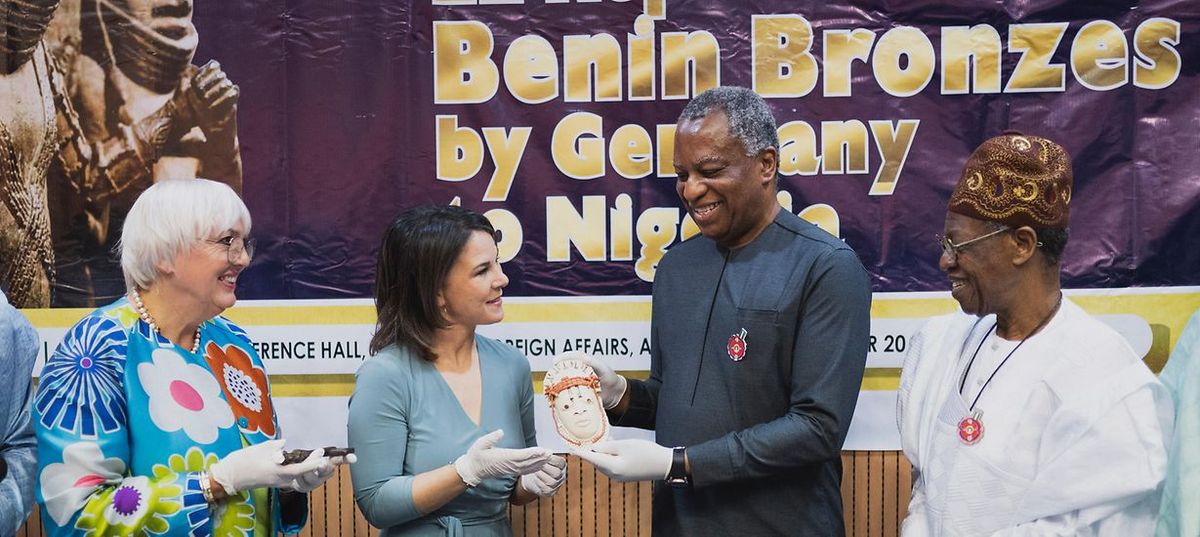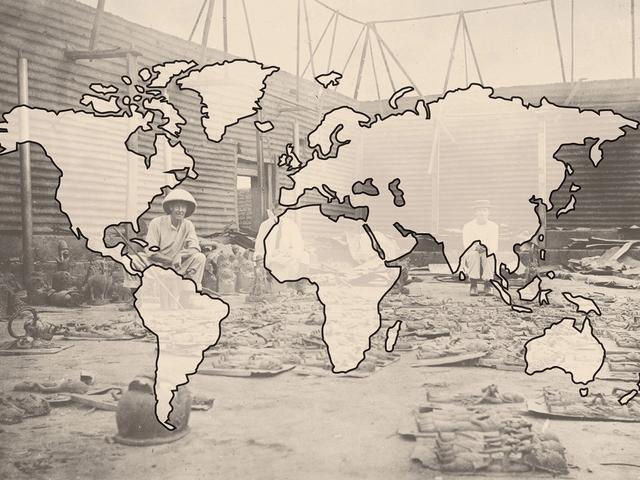German government officials have handed over 20 Benin bronze objects to Nigeria as part of a major restitution agreement signed earlier this year. Germany’s foreign minister Annalena Baerbock gave items such as a miniature mask of an Iyoba (queen mother) and the brass head of a Benin king (oba) to her Nigerian counterpart, Geoffrey Onyeama, in a ceremony held at the Nigerian foreign ministry in Abuja on 20 December.
Under the German agreement, 1,100 artefacts will be returned from museums with the biggest collections of Benin bronzes: ethnological museums in Berlin, Stuttgart, Cologne, Leipzig and Hamburg. Berlin’s Ethnological Museum has the largest contingent of Benin bronzes in Europe after the British Museum.
But not all of the disputed items will go back. “Not all bronzes in the collections of German museums will return to Nigeria immediately. The Nigerian side has declared its willingness to leave some artefacts here on loan, so that they can continue to be exhibited in Germany. This is a very special gesture of trust and of amity between the two countries,” says a statement on the German foreign ministry website.
The ministry adds: “The first state restitution of looted art from the colonial era on this scale is also laying the foundation for building on relations between the two countries. To this end, [Germany's] foreign minister Baerbock will hold political talks in Abuja on bilateral and international cooperation.”
Earlier this month the Rautenstrauch-Joest-Museum in Cologne, an ethnological museum that opened in 1906, said it will transfer ownership of 92 works; three items will be returned this month with 52 objects to be transferred from next year. Crucially, Germany has agreed to contribute to the construction of a new museum near the royal place in Benin City, the Edo Museum of West African Art, to house the bronzes.
The ongoing restitutions end decades of wrangling over metal and ivory artefacts looted by the British army from what is now southern Nigeria as part of a punitive expedition in 1897 (“Benin bronzes” includes objects not only made of bronze but brass and ivory too). Since the 1960s, Nigeria has repeatedly called for their repatriation. The country gained their independence from Britain on 1 October 1960.
The latest move puts the spotlight once again on the British Museum, which holds around 900 pieces from the kingdom of Benin. Godwin Obaseki, the governor of Edo state, told The Guardian: "Britain has most of the works, and we thought they would provide leadership. They were the ones who came here and destroyed the empire, they were the ones who looted pieces from here, and they should be leading in restitution."
But some UK institutions have decided to repatriate their Benin objects. Earlier this year, the Horniman Museum & Gardens in south London transferred ownership of 72 artefacts from Benin City to the Nigerian government. The Horniman’s trustees agreed in July to transfer ownership, as the “moral and appropriate” response to a request from Nigeria’s National Commission for Museums and Monuments.
Six objects from the museum were handed over to Nigerian officials at a ceremony on 28 November including an ivory staff of office depicting a carved relief figure of an oba (king) and a brass plaque depicting Oba Orhogbua (around 1550-1578).



